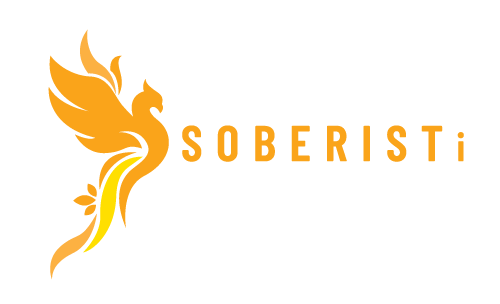The Soberisti Team Introduces, part II: Piia Koivumäki
How did you become involved with Soberisti?
I followed Ira (Ira Koivu, founder of Soberisti) on social media for a couple of years and noticed that her views on alcohol addiction aligned closely with mine, especially as a highly educated woman.
I reached out, and we immediately began collaborating to develop Soberisti.
What drew you to Soberisti?
A different, fresh perspective, a positive psychology approach, and the starting point where one can define their alcohol addiction in a way that feels most fitting to them, without the need to adopt an alcoholic narrative if it doesn’t resonate with them.
What also resonated with me in Soberisti is the “compassion,” as one peer group member put it. This refers to the freedom to speak about alcohol addiction differently, using alternative terms.
There’s no requirement to tell a story of illness or recovery from alcoholism if that doesn’t suit one’s experience.
However, this freedom should not be misunderstood as permission to continue with “moderate drinking.”
The Soberisti method doesn’t deny alcohol addiction but offers a different way to articulate it.
The majority of Soberisti members completely quit drinking because they understand that moderation is not a reasonable option.
It’s also important to mention that while Soberisti is based on this alternative approach to thinking and expression, we understand that the traditional mindset works better for some people.
We respect everyone’s right to describe their situation in their own terms.
Soberisti clients often describe their life situation as overwhelming or challenging, with problematic alcohol use serving as a coping mechanism.
What is your role at Soberisti?
I am a developer, expert, facilitator of professionally guided peer groups, and a leader of personal, resource-focused short-term therapy.
How do you see the future of Soberisti?
More and more people with alcohol addiction, who need and want support, but do not feel aligned with traditional addiction services—where addiction is seen as a chronic, relapsing brain disease (and where one must refer to themselves as a recovering alcoholic)— will find Soberisti.
These individuals recognize the strong stigma associated with those traditional concepts, and they prefer to think, speak, and articulate their situation differently.
As I mentioned earlier, this should not be interpreted as denial of the problem, as it is sometimes misunderstood.
Message to those making decisions in addiction services?
Early, low-threshold, and easily accessible digital support for quitting problematic alcohol use and recovering from addiction is the most effective and economical approach, both in terms of alleviating human suffering and from a financial perspective.
**
Piia Koivumäki is an expert in psychosocial addiction, a therapist, psychology teacher, and doctoral researcher.


